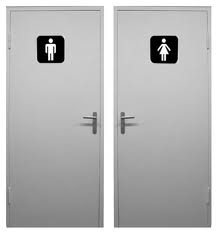January
2013
California Court Dumps Class Action Against Toilet Manufacturer
On January 4, 2013, the United States District Court for the Central District of California partially dismissed a class action suit against Flushmate and a number of other defendants. United Desert Charities v. Flushmate, et al., 2:12-cv-06878 (C.D.Ca., Jan. 4, 2013). A copy of the decision may be obtained here.
Flushmate manufactured the “Series 503 Flushmate III Pressure-Assist Flushing System,” which was integrated into several different models of toilets sold by many well-known retailers. The Flushmate system was subject to a 2012 recall by the CPSC after numerous failures were alleged. According to Flushmate’s own advisories issued in 2000 and 2003, joints within the system were occasionally known to separate, leading to the “rapid release of the pressurized water contained in the vessel.” This defect allegedly resulted in several instances of property damage and personal injury.
Plaintiffs, all owners of toilets equipped with the Flushmate system, filed a class action complaint alleging several claims against Flushmate, as well as several toilet manufacturers that purchased and integrated the Flushmate system into their toilets. The purported class alleged claims of fraud, violation of California unfair competition law, breach of express and implied warranties, and violation of the California Consumer Remedies Act.
Last week, the court substantially trimmed the scope of the proposed class action by dismissing several claims. The court dismissed plaintiffs’ fraud claim, as their fraud claims had not been pled with sufficient specificity, and because plaintiffs’ failed to allege that they actually relied on the defendants’ misrepresentations. The court also dismissed the plaintiffs’ California Consumer Remedies Act claim, and several of the plaintiffs’ express and implied warranty claims. However, the court left intact plaintiffs’ unfair competition claim. Not surprisingly, the court’s dismissal of several of the plaintiffs’ claims was without prejudice, thus leaving the door open for plaintiffs to file an amended class action complaint.
The court’s decision is relatively similar to yesterday’s post on this blog in the Borger v. Trex class action, available here. Notably, the California court, in this case, held that the plaintiffs’ fraud claims were not barred by the economic loss doctrine. As discussed on this blog yesterday, the economic loss doctrine bars recovery under tort for damages that solely consist of economic losses. Many courts apply the economic loss doctrine so as to bar fraud claims similar to the claims alleged here. Relying on California law, however, the court held that the plaintiffs’ fraud claims were not barred by the economic loss doctrine, because the fraud alleged induced the plaintiffs to purchase and use the defective product, and thus the defendants’ misrepresentations were separate from the issue of providing allegedly defective products. This is a critical distinction and illustrates the necessity for products manufacturers operating on a nationwide scale to be aware of the differences in the law applied across their markets.



